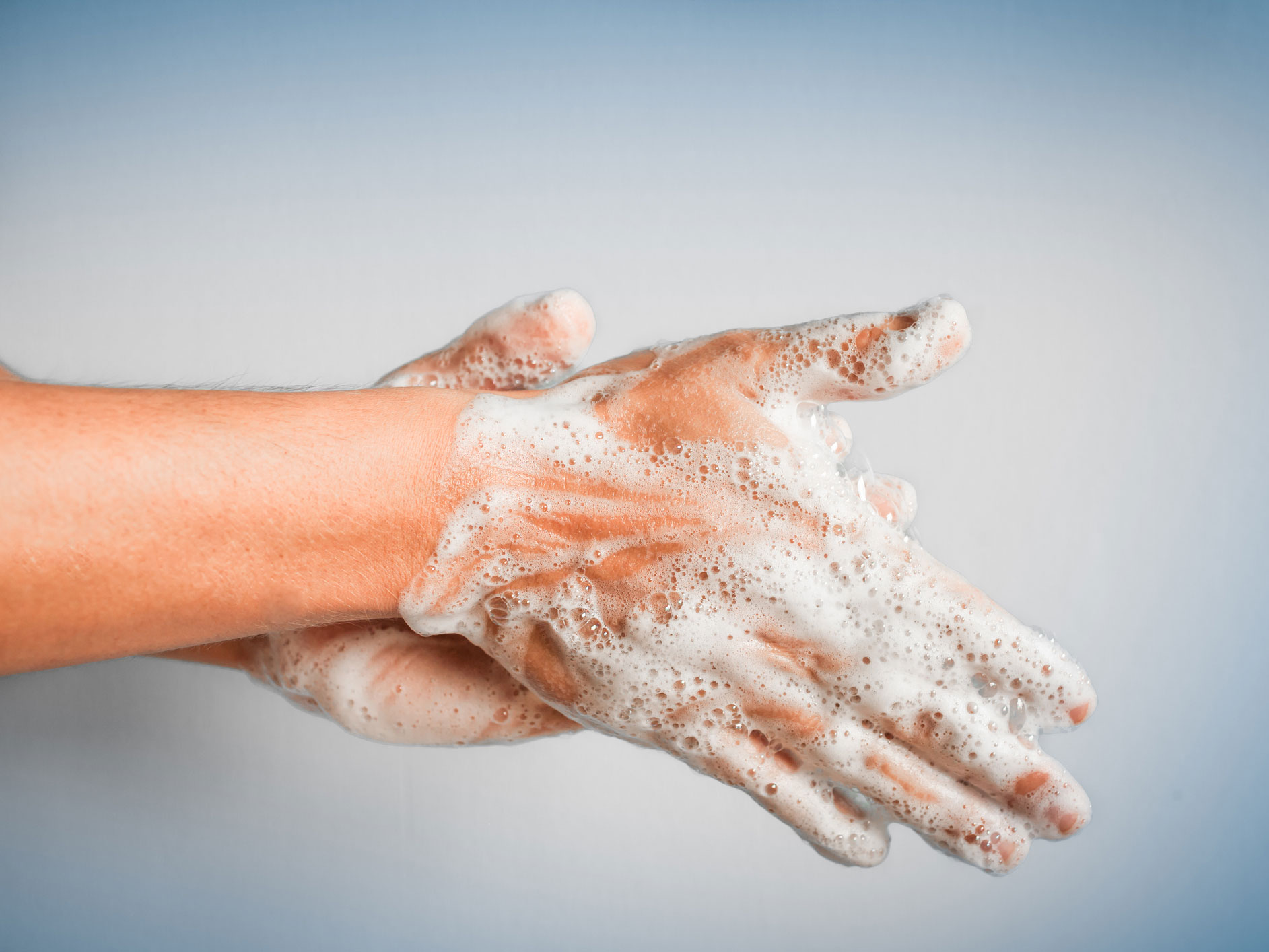Get Easy Health Digest™ in your inbox and don’t miss a thing when you subscribe today. Plus, get the free bonus report, Mother Nature’s Tips, Tricks and Remedies for Cholesterol, Blood Pressure & Blood Sugar as my way of saying welcome to the community!
Why simple soap slays viruses better than alcohol and disinfectants

With COVID-19 in the rearview mirror, we can breathe a sigh of relief. Yes, we still have the threat of mutated versions of the virus, but we are, by leaps and bounds, in a far better place than we were a year ago.
And some good lessons actually came out of the experience…
You’ve probably heard the saying, “Drastic times call for drastic measures.” And the pandemic was one of those times. It was tempting to apply drastic measures to our disinfectant efforts. We wanted to use the strongest, most potent-smelling disinfectants we could get our hands on to eradicate that virus.
But something we learned that we can carry forward, no matter what virus we face, is that the simple answer turned out to be the best answer…
Simple soap is incredibly effective at killing the coronavirus, and all viruses for that matter. In fact, it’s more effective at killing viruses than alcohol and disinfectants. Here’s why soap is the best virus slayer around…
Understanding the science behind soap’s virus-slaying abilities
Here’s something you may not know about soap and viruses…
Viruses have a lipid (fat) coating. Soap dissolves this fat, which causes the virus to fall apart. This “kills” the virus or more accurately, causes it to become inactive (viruses aren’t living, so they can’t technically be killed).
Disinfectants and alcohol-based products have a similar impact on viruses… they just don’t cause the virus to fall apart quite as well, which means they’re less effective. Why exactly is soap more effective at inactivating viruses than disinfectants and alcohol?
Well, to understand that, first you have to understand a little more about viruses…
Viruses are built from three key components: RNA, proteins, and lipids. When a virus enters your cells, it takes over and starts giving orders. It makes your cells create its viral RNA, proteins and other building blocks. Basically, your cell becomes a little factory pumping out the parts the virus needs to assemble new viruses.
When all the new viruses become too much for a cell, the cell dies or explodes… which spreads the viruses into additional cells in your body. In the case of a respiratory virus like coronavirus, these viruses take over the airways and mucous membranes in your lungs. In fact, when you cough or sneeze, you release virus-containing droplets that can spread a lot farther than you realize — anywhere from seven to 30 feet!
The droplets you release from coughing or sneezing land on surfaces — and the viruses in them remain active for quite a while, up to a few days in some cases. Now, viruses interact differently with different surfaces. Unfortunately, the skin is a surface that viruses tend to favor. When you touch another surface that has a virus on it, it sticks to your skin.
Having a virus on your skin isn’t enough to get you infected, but putting your hands in your eyes, nose or mouth is. That’s why not touching your face is so important right now. Luckily, washing your hands will deactivate the virus. But you have to wash your hands right…
Water alone isn’t enough to deactivate the virus. You need soap because it contains substances that are similar to fat and, more specifically, similar to the fats in a virus’ membrane that I mentioned earlier.
These fat-like substances start competing with the viral membranes and taking them over. They also start taking over the bonds that keep viral RNA and fats together. And without proper structure, the virus starts falling apart. Soap also interferes with the interaction between the skin surface and the virus, which keeps it from adhering to your skin.
Alcohol-based products that are at least 60 percent alcohol also cause viruses to fall apart… but not as consistently or effectively. Other antibacterial agents like triclosan are pretty much useless against the virus.
Should you forget about hand sanitizer? Not yet…
So, soap is your best friend during any viral pandemic… or even during a run-of-the-mill cold and flu season. But you should also have alcohol-based hand sanitizer on hand for those times when a sink isn’t nearby.
Related: How to make homemade hand sanitizer that actually works
Since your skin is filled with nooks and crannies, you need to really rub and soak your hands to make sure the soap reaches all the active viruses hiding out.
The FDA and Harvard doctors recommend that you soap up your entire hand (inside of your fingers, around your nail beds and up to your wrists). And make sure to wash for at least 20 seconds (about as long as it takes to sing the “Happy Birthday” song).
When using hand sanitizer, use at least 3 milliliters (a little more than half a teaspoon) of sanitizer and rub the sanitizer on your hands for at least 25 to 30 seconds.
You can use soap and water to disinfect surfaces too if you’re not a fan of harsher cleaning supplies.
Editor’s note: Did you know that when you take your body from acid to alkaline you can boost your energy, lose weight, soothe digestion, avoid illness and achieve wellness? Click here to discover The Alkaline Secret to Ultimate Vitality and revive your life today!
Sources:













